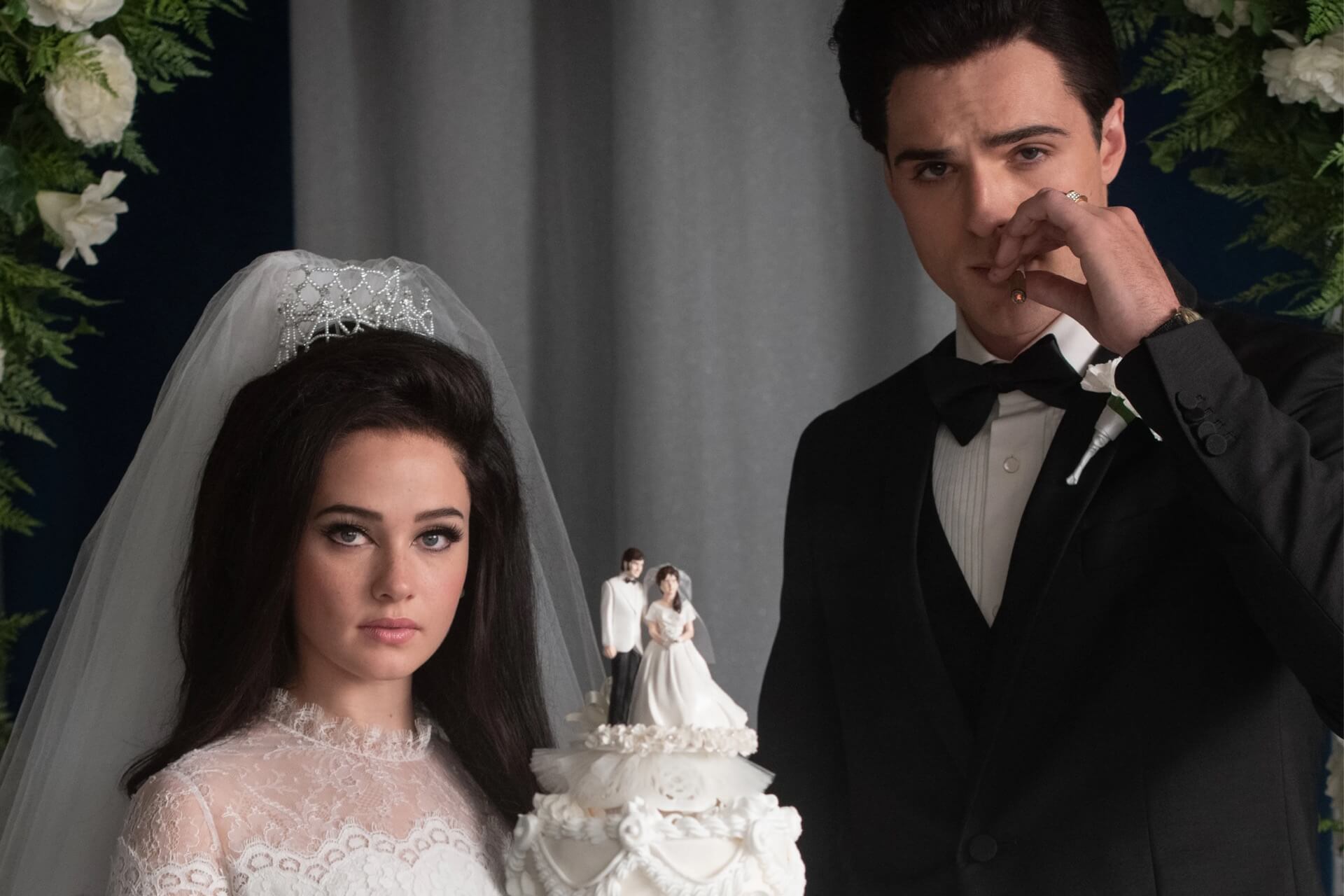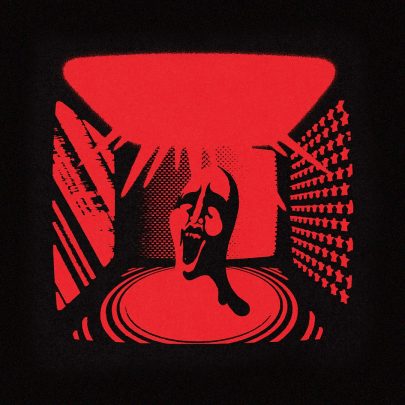Apr 30, 2024 Film & TV
Bizarrely, watching Ridley Scott’s Napoleon earlier this month, with its haunting opening scene of Marie Antoinette being led to the guillotine, I found I couldn’t stop thinking about Sofia Coppola’s Marie Antoinette, that portrait of imprisoned, youthful innocence on the brink of doom. That potent scene lingered in my head throughout the rest of the (fun, but merely okay) film, and later it manifested recurring bouts of conflicted sadness as I lay awake at night — the brutality of her death, not shown in Coppola’s film, and the brutality of the system around her that put her there. This, in a roundabout way, is the great effect of Sofia Coppola’s work — its subtlety, dignity and stylistic remove draws you in softly, but cuts sharper and deeper than most, leaving scars lying there waiting to be uncovered at unexpected times. It’s true of not just Marie Antoinette but of her other masterpieces The Virgin Suicides and Somewhere, as well as The Beguiled and Lost in Translation, and they’re all united by their protagonists, usually women, trapped in ornate, beautiful settings that are, in effect, gilded cages.
Priscilla, one of the very finest films of the year, is another of these portraits of confinement, this time turning toward a more modern and American royal family. Bouncing back from the enjoyable but slight trifle of On the Rocks, Coppola’s latest film is a profoundly sad excavation of the perspective of the ‘child bride’ of Elvis Presley, Priscilla Presley née Beaulieu. Following ten years of Priscilla’s life — from meeting Elvis at 14 while he was on tour in West Germany, to leaving him and his world of dark fantasy behind at 24, we bear witness to the transformation of a quiet, nervous young girl into a fortified, yet grief-stricken, young woman. It serves as a sobering tonic to last year’s camp epic Elvis, the Baz Luhrmann-directed biopic that, while accomplished in its own right, was more interested in providing a sweeping exploration of the man as myth than digging into the ruinous, well-hidden domesticity of the struggles that tore him and his great love apart.
Coppola is our greatest cinematic excavator of the mind and soul of the teenage girl, an obsessive collector with a supernatural talent to evoke this most aesthetically and spiritually potent of groups, whose desires have imperceptible, rippling impacts on society at large. There’s a reason that stills from Coppola’s films still line the walls of teenage girls’ rooms, or are cut into visually pleasing TikTok supercuts, or have their soundtracks packed into playlists the world over, just as they populated Tumblr a decade ago. Coppola has always had an eye for casting the right girl for the right role as well — Virgin Suicides’ Kirsten Dunst, Lost in Translation’s Scarlett Johanssen, Somewhere’s Elle Fanning. Coppola’s latest muse is Cailee Spaeny, a relative newcomer most well-known up to this part for a minor role in Mare of Easttown. As Priscilla, the 25-year-old Spaeny is astonishing, capturing wary, girlish awe and emerging indomitability in equal spades. Utterly convincing playing 10 years younger in the early stages of the film, Spaeny is hard to look away from as 14-year-old Priscilla is approached in a diner in West Germany (where her father, a military man, is serving) by a friend of Elvis’, who spies her and invites her along to one of his parties. Is it a chance meeting, or is Elvis’ entourage out prowling for young offerings that might please the rock star? This question is left teasingly, hauntingly unanswered, even as Priscilla finds herself in the middle of what at first seems like every teenager’s fantasy — their matinee idol isn’t only right in front of them, they want them.
I’ve always loved the music of Elvis Presley. One of my favourites was a favourite of my grandparents too, the jaunty torch song ‘Wooden Heart’. Returning to the song, I was struck by the fact that the song features lyrics in German (it is, in fact, a reworking of a German love song), an eerie parallel to the foundational site of Priscilla and Elvis’ love — but it’s also a song about a tragic parting, one the singer can barely stand. The German lyrics translate to “Do I have to, do I have go out to the little town, out to the little town. And you, my treasure, stay here?”
In Priscilla, Elvis is played by Jacob Elordi, a teen heartthrob in his own right, emerging promisingly into movie stardom this year with this film and Saltburn (of which he was the best part), leaving the trashiness of Euphoria and The Kissing Booth far behind in the rearview. Comparisons will no doubt be made between this performance and that of Elvis’ Austin Butler — which was the superior King of Rock’n’Roll? Why we must pit two queens against each other, I don’t know, but Elordi’s ultimately feels more like a real manifestation of Elvis while serving a very different purpose in the fabric of Priscilla. Coppola cannily ensures that the perspective of Priscilla is foregrounded in every way, something that has been very rarely done in the telling of this story. With the real Priscilla Presley serving as an executive producer on the project, and her memoir serving as the (controversy-baiting) blueprint of the script, Elvis is just as often a missing entity in the later periods of the film as he is actually on-screen. After a tender union is formed between the two, with Elvis regularly finding ways to wriggle Priscilla from out of the wary clutches of her parents, he eventually makes arrangements for Priscilla to move back to the United States, living with him in his sweeping Graceland estate. At that point, Priscilla is forced into the background of Elvis’ life, the dreamily-rendered Graceland of the sixties just as often a suffocatingly empty, ornate prison as a bustling hive of activity whenever Elvis and his entourage return with a crash and a bang.
One of the most compelling aspects of Priscilla is the maturity and complexity with which it explores the evolving nature of this love story. Never does the film sweep aside the fact that Priscilla is very much a minor when she first comes into the orbit of the much older rock star, but neither does the film distil their relationship into one of simple, predatory opportunism. As played by Elordi, Elvis is presented as a boy in his own right, trapped in stasis by his very success. Rather than offering the rock star an out, though, Priscilla uses this to create a portrait of a relationship as tragic, devastating and cruel as it is because of the very real love the two share. What we witness in the early parts of Priscilla is, through a modern lens, the definition of grooming, and yet Coppola and Spaeny never allow their subject to be reduced to a naïf plaything. There is real awareness and soulfulness to even the young Priscilla, despite the fact she is walking into a world beyond what she could ever imagine. The connection the two share in those early scenes in West Germany and later in Graceland are strikingly gentle and loving, and it’s clear that Priscilla possesses some sight that allows her to see the man in a way that no one else can, a sight Priscilla attempts to emulate. Fascinatingly, this is all punctuated by the fact that the two didn’t consummate their union for several years, until after they were wed.
And yet, this is ultimately the story of a relationship’s end, even if the love that fuelled it never fades. The film’s heartbreaking second half is a series of devolutions, in which the many dark forces at play in the controlling of Presley’s life and image allow the monstrous aspects of his spirit to emerge. Coppola’s penchant for muted, methodical pacing is pushed to its limit here, crafting a recurring cycle of cruelty and reunion that is sure to be jarring for Elvis fans used to the depiction of the star as a holy rock god first, a victim second. He most certainly is both of those things, but he still possesses the power to create a victim in Priscilla too. All the while, through subtle modifications to Spaeny’s appearance and modulations to her exacting performance, we begin to see the woman Priscilla would become start to emerge. The tragedy of watching Elvis’ light fade is tempered by the sparking of Priscilla’s, culminating in an exceptionally powerful ending scored to Dolly Parton’s ‘I Will Always Love You’. In real life, the song was a favourite of the pair, and Elvis sang it to Priscilla after their divorce was made final — they left the courthouse holding hands.
Coppola, who has faced a number of setbacks in getting films made in recent years (another example of the casual sexism of the Hollywood industry — if even arguably the most significant woman filmmaker of the era cannot get financing, what are we even doing here?) puts her all into her direction here, finding new shades to the softness, anachronism and unapologetic femininity of her work. Regularly, Coppola and cinematographer Phillippe Le Sourd frame Priscilla inside enormous wides in the cavernous interiors of Graceland, pushing Spaeny’s short stature to an extreme and suggesting a potent vulnerability. At other times, the camera is warmly intimate with the actress, patiently drawing us into her rich inner world. It’s a give-and-take that rhymes beautifully with the hot-and-cold of Priscilla and Elvis’ romance. Critics that have decried Priscilla for its failure to create a full-throated ode to female empowerment are missing the quieter but more profound shades of genuine empowerment that the story trades in — the Priscilla of Priscilla is no symbol or figure of a wider movement, she’s a human being. It’s the same approach Coppola takes to Elvis. To suggest that Elvis is an innocent pawn in the many troubling aspects of his life, music and legacy is to cede to an appealing falsehood, one that Priscilla refuses to indulge even as it shows genuine joy and love for the man in his best moments. To me, this rendering of both Priscilla and Elvis is a far more respectful tribute, and remembrance – they are not gods, but fallible beings. Elvis was a great talent torn apart by malicious forces never captured on screen but always just outside of frame. Priscilla, both the film and the person, do their utmost to restore the dignity of seeing someone truly and unblinkingly.






